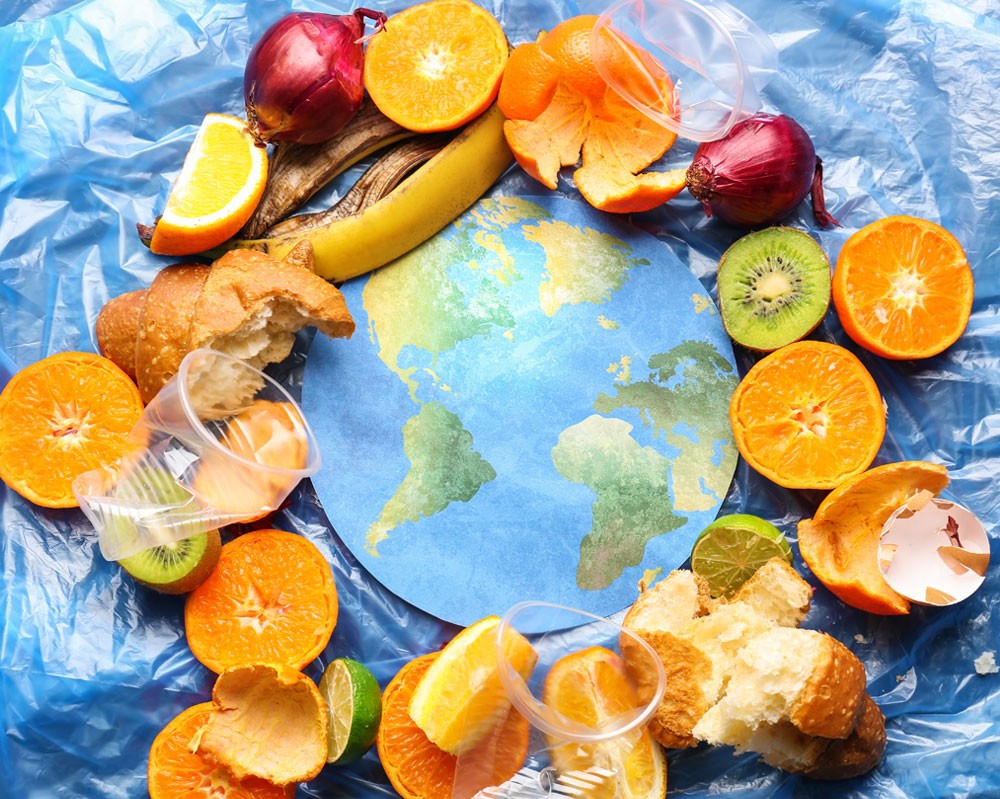FROM 16 TO 24 NOVEMBER 2024, EUROPE UNITES TO FIGHT FOOD WASTE DURING THE EUROPEAN WASTE REDUCTION WEEK (SERR). THIS YEAR’S THEME IS FOOD WASTE, WITH THE MOTTO: “GOOD TASTE WITHOUT WASTE!”
A week of awareness
The European Week for Waste Reduction was first launched in 2009, thanks to a pilot project co-funded by European Commissionwith the aim of tackling one of the most serious problems of our time: the excessive waste production.
Now in its 16th edition, this event represents the largest community initiative to raise awareness and promote concrete actions aimed at reducing waste in all sectors of society.
Every year, Europe produces thousands of tonnes of waste, with devastating consequences for the environment. The SERR was created to actively involve citizens, public authorities, schools and companies in initiatives that can reverse this trend.
Over the years the campaign has grown exponentially. From small local initiatives it has developed into a truly international movement, capable of involving millions of people across Europe. To date, the EWWR has inspired over 100,000 awareness-raising actions in more than thirty countries. But let’s get to the topic of the next edition.
Edition 2024: focus on food waste
Each year the EWWR focuses on a specific theme to promote waste reduction and in 2024 the focus will be on food waste. This problem manifests itself at every stage of the food supply chain, from agricultural production to distribution, to domestic consumption.
Part of the harvestis, for example, thrown away for aesthetic reasons or because of surpluses. At the distribution stage, food may be thrown away due to packaging, transportation or shelf life issues.
Even at the household level, a significant amount of food is thrown away, often due to ineffective meal planning or excessive purchasing.
The consequences of these actions are manifold and significant. Economically, this waste entails high costs for producers and consumers.
On the level environmentFood thrown into landfills decomposes and releases methane, a powerful greenhouse gas that contributes to global warming. Moreover, food production requires natural resources, such as water, soil and energy.
On the level socialthe situation also takes on an ethical relevance, with regard to equal access to livelihoods. But let’s get to the event.
How to participate in the event
Registrations for participation in the HEAD they are open from September 2 to November 6, 2024. This initiative is aimed at everyone: citizens, companies, schools, governments and associations.
To start, you should think about an initiative that can help reduce food waste. For example, organize an awareness campaign or an educational workshop.
Once the action is planned, you can simply register on the EWWR official website before the deadline, providing details of the initiative you plan to implement. During the special week, from November 16 to 24, it is important to put the initiative into practice and share the results on social media or through your community channels.
Furthermore, it is essential to spread the message by involving other people and organizing meetings or discussions on the topic.
Even a drop in the bucket can make a difference
Combating food waste can start with simple actions that are within everyone’s reach. Each of us can make a significant contribution by implementing some daily practices. Planning your weekly meals before you go grocery shopping is an excellent starting point as it allows you to buy only what is absolutely necessary and avoids impulsive and unnecessary purchases.
Once home, it is helpful to organize foods according to their expiration dates and consume the products that are about to expire first. This simple measure helps reduce the risk of food unnecessarily ending up in the waste.
Leftovers can be stored and reused in various ways. Freezing them to use later or convert into new recipes not only prevents waste, but also provides the opportunity to experiment in the kitchen.
Another important action is donating food that is still good but about to expire. Many community organizations and soup kitchens accept donations and can distribute these foods to those in need.
An opportunity to make a difference
Participating in the SERR means taking concrete action to change our daily habits and encourage institutions and companies to make greater efforts to reduce waste. It is an essential step towards a more sustainable future, where food is not seen as a disposable commodity, but as a precious resource that must be preserved.
«We can’t always do big things in life, but we can do small things with great love.”. This famous phrase from Mother Teresa of Calcutta reminds us that even the smallest actions, when done with passion and dedication, can have a significant impact.

